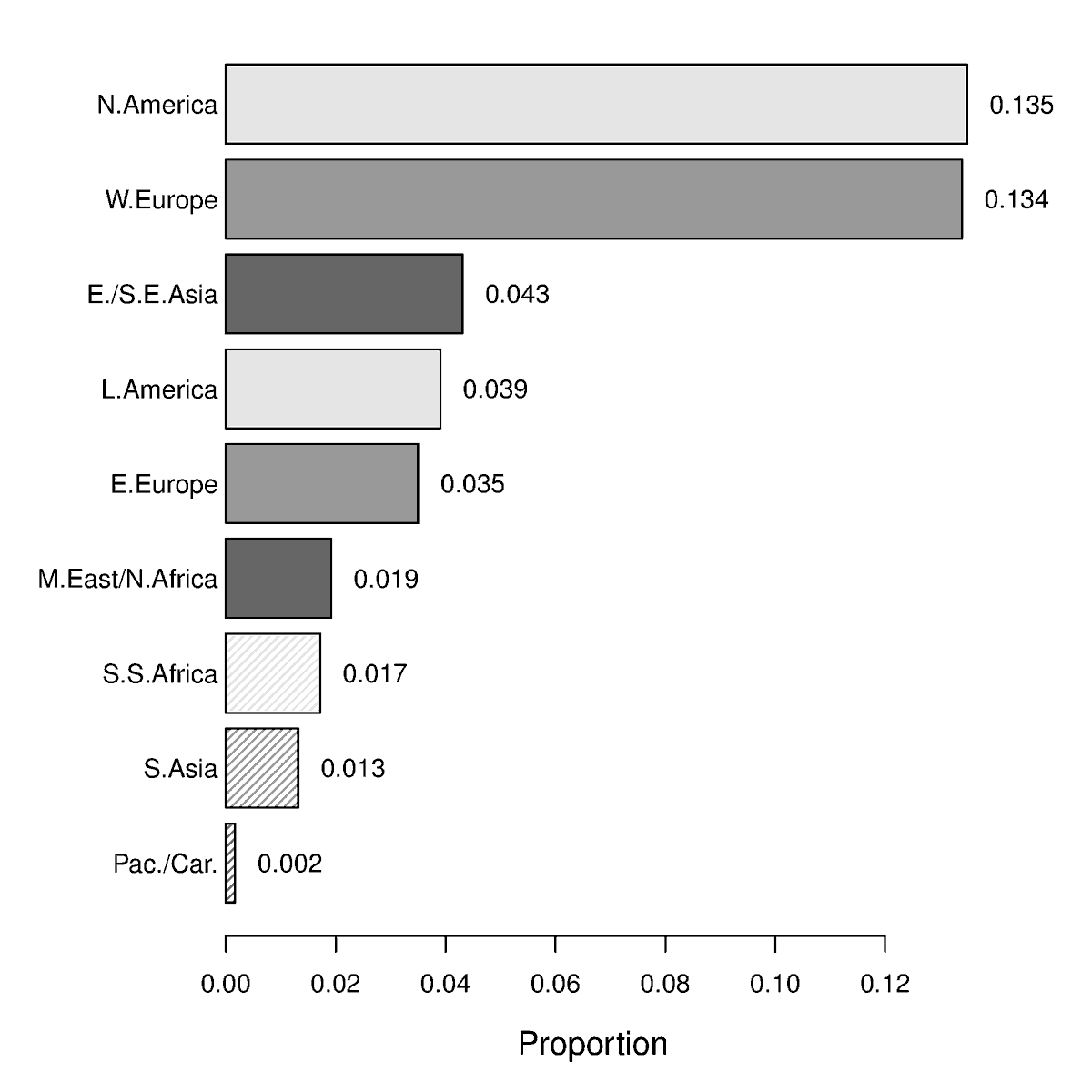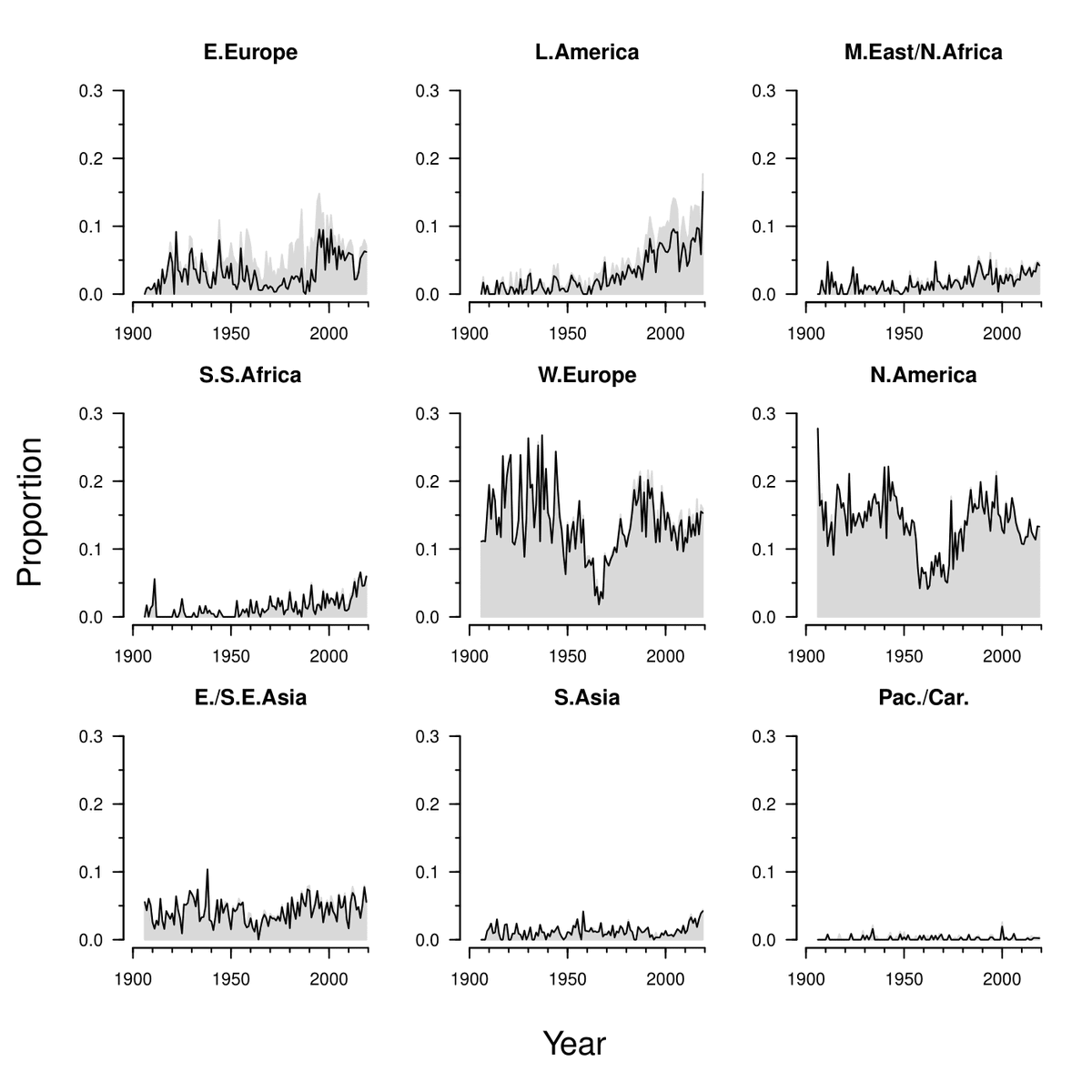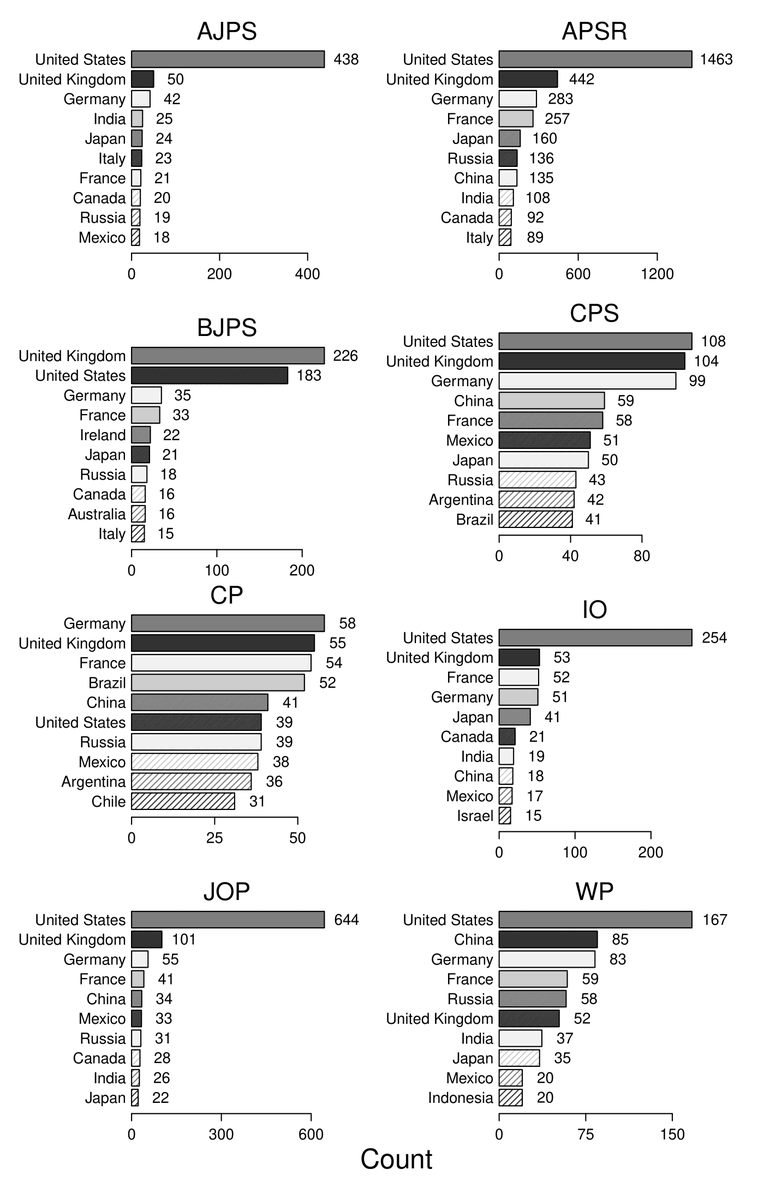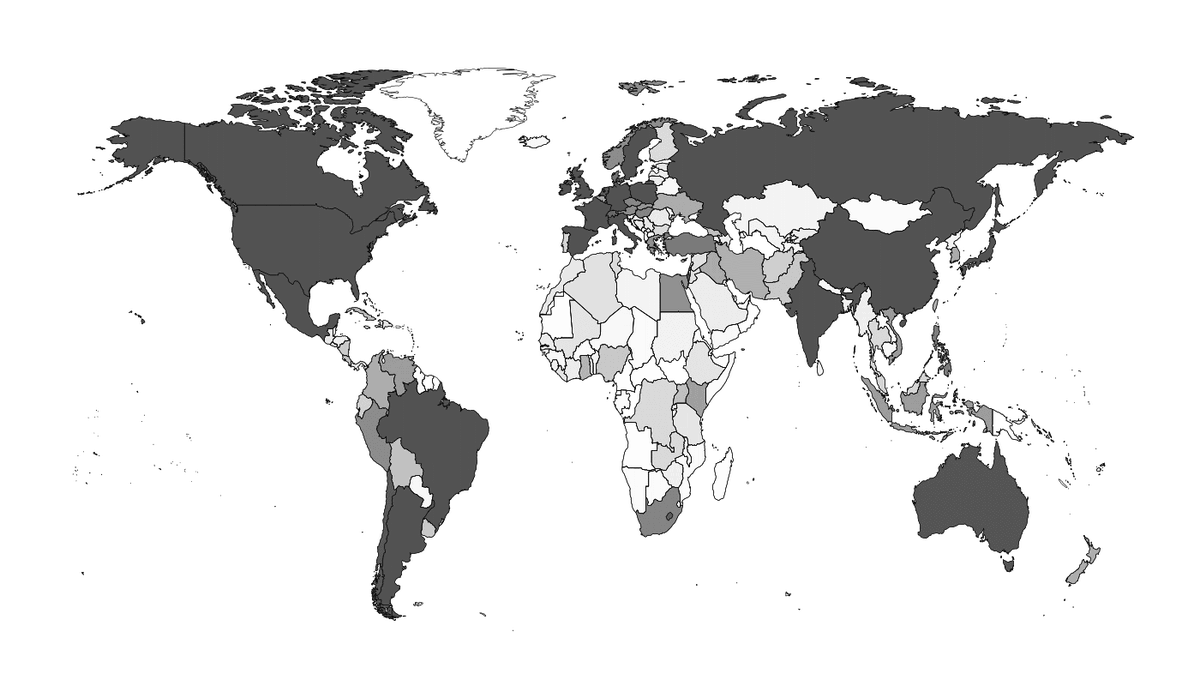In a new @PoPpublicsphere article, @polyarchist and I study the geographical coverage in political science research over more than a century (Thread, 1/15!): https://www.cambridge.org/core/journals/perspectives-on-politics/article/geographical-coverage-in-political-science-research/0CCBDF779291CAA8CF7958C7125983D7/share/49ab9fff89e349dd3d6fbab1734ec6e22f56e6be">https://www.cambridge.org/core/jour...
Specifically, we draw titles and abstracts from 27,690 from publications from 1906-2019 in 8 top journals ( @apsrjournal , @AJPS_Editor , @The_JOP , @BJPolS , @cps_journal , @cps_journal , @World_Pol , @IntOrgJournal) .
Some countries get more media attention than others. “Everyone” knows who the US president is, or the basics of the British political system. But, what about politics in Indonesia, Ethiopia, or Argentina?
Turns out, also political scientists have been strongly focused on politics in a handful of Western democracies. Even though the discipline is getting more “globalized”, with different regions receiving more attention over the last decades, the Western focus is still strong.
The US, in particular, receives much attention, and not only because we have a subfield called American Politics. Esp. in the top IR journal (IO), the US dominates. CP journals have more even distributions, but W Eur and Lat Am countries are much more studied than African & Asian
Of course, we haven’t read all 27,690 publications: Our measure of “geographical focus” presents a high bar: The country must be explicitly mentioned in the abstract or title (see the paper for details).
Another caveat is that these 8 major journals are not representative of wider universe of journals. Yet, what is published in these major journals still matter a lot for our accumulated knowledge about politics, given how widely read and cited they are.
Now, there are many different factors that affect research focus (and our measure): Rich, western democracies have more political scientists studying their country of residence, more available data, and they are prominent in public debate (grabbing researchers’ attention).
Conversely, doing interviews or fieldwork in poor, authoritarian countries presents challenges, often incl learning a new language. Also, if pol scientists believe their country is considered less relevant by reviewers and editors, they may “hide it” from the abstract and title.
No matter the combo of mechanisms, there is a skew in geographical coverage. Running regressions, we find that this is not only due to a country being “Western”, language, or population size. Richer and more democratic countries, everything else equal, receive more attention.
Does this matter for our theories and knowledge about politics? We believe it does. Political scientists often purport to produce general descriptions and theories about how politics work.
Theories about political parties or welfare states might have looked different if Asian countries were as widely studied as W Eur ones. Major theories in IR may have looked different if focus on the US had been complemented by studies on foreign policies of other countries. Etc.
For many topics and research questions, we can, in principle, learn as much about politics from studying Peru, Nigeria, or Fiji as France, Germany, or Ireland. (Interestingly, our data show that 20 countries have never been cited in title or abstract in the 8 major journals)
Political scientist are now increasingly broadening their scope, but there is still room for increasing geographical diversity. This will not only lead to a better understanding of politics in “under-represented” countries, but also more generally of how politics works.
Finally: Check out Matt& #39;s homepage, with his (updated) online tool that allows you to look at trends and download data on different search terms from the publications that we draw from in this article. Fantastic resource! (15/15) http://matthewcharleswilson.com/Resources.html ">https://matthewcharleswilson.com/Resources...
Correction: I see that I mentioned CPS twice in the list of journals, but one of these mentions should have been @Journal_CompPol , which is also one of our eight journals

 Read on Twitter
Read on Twitter





